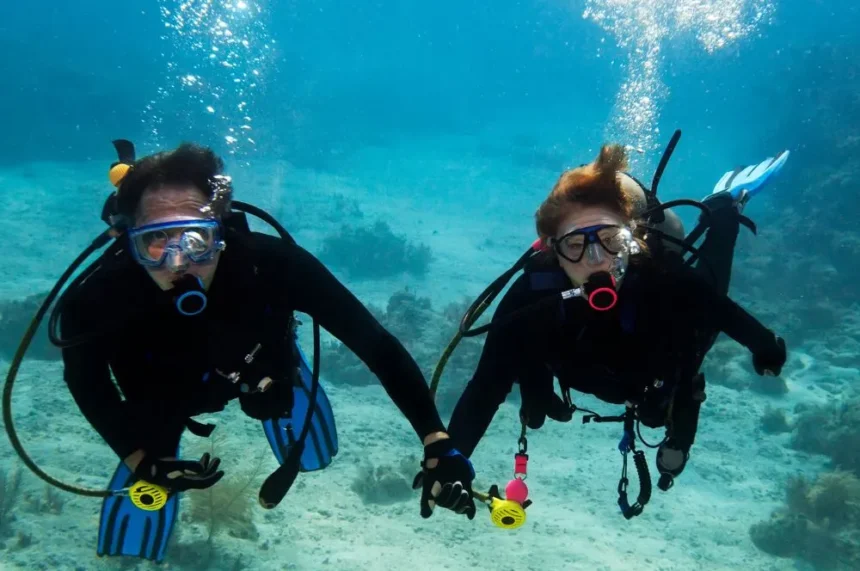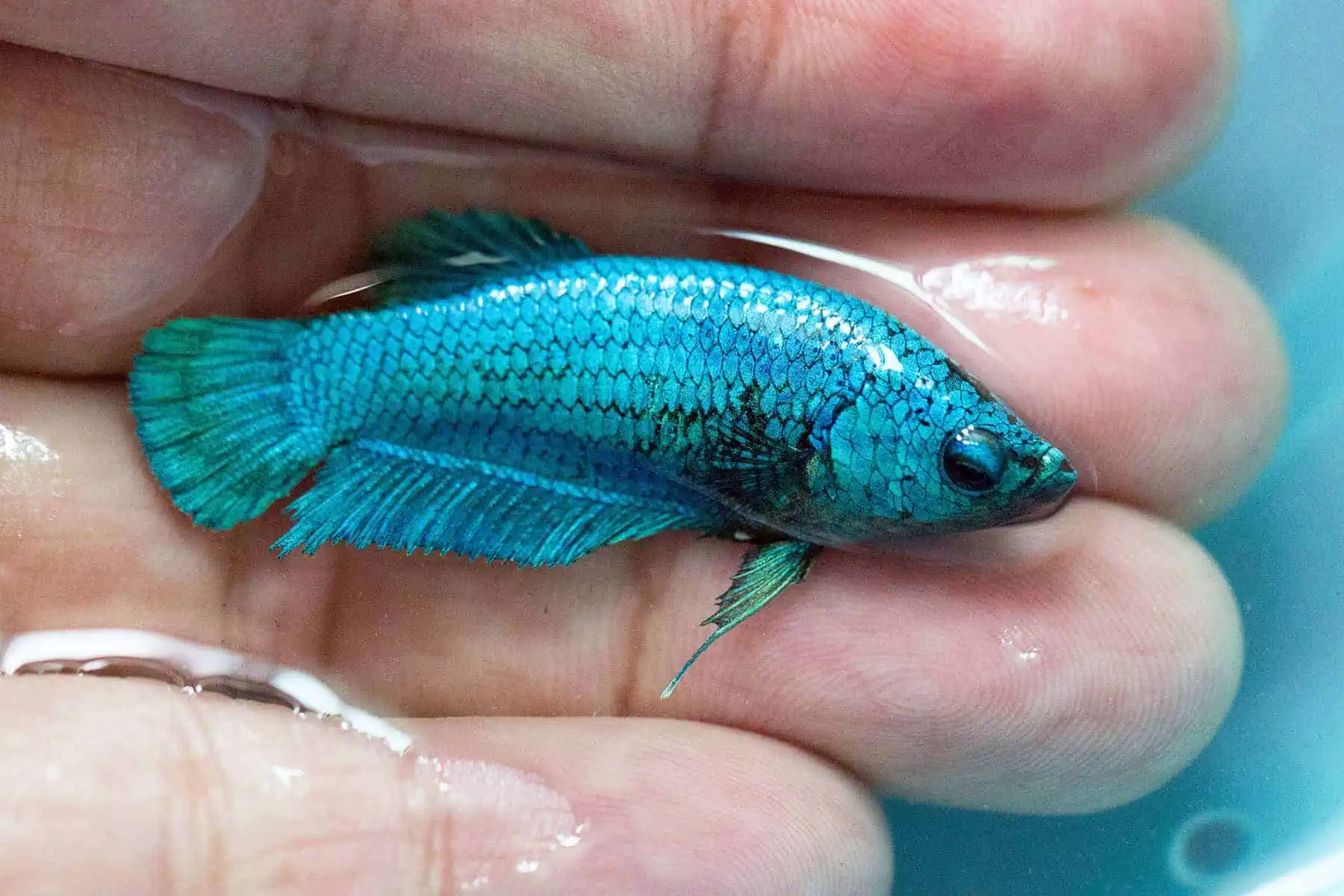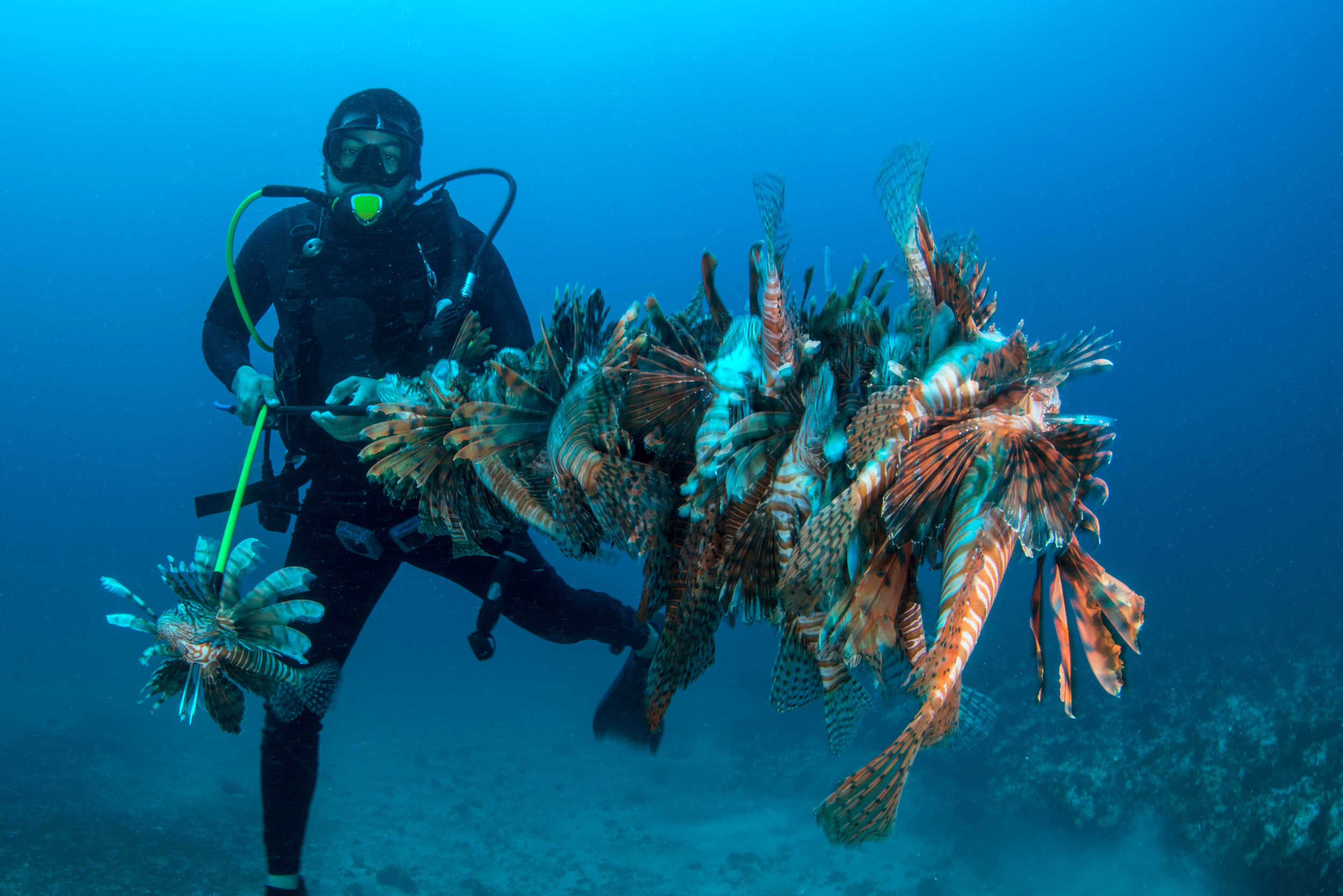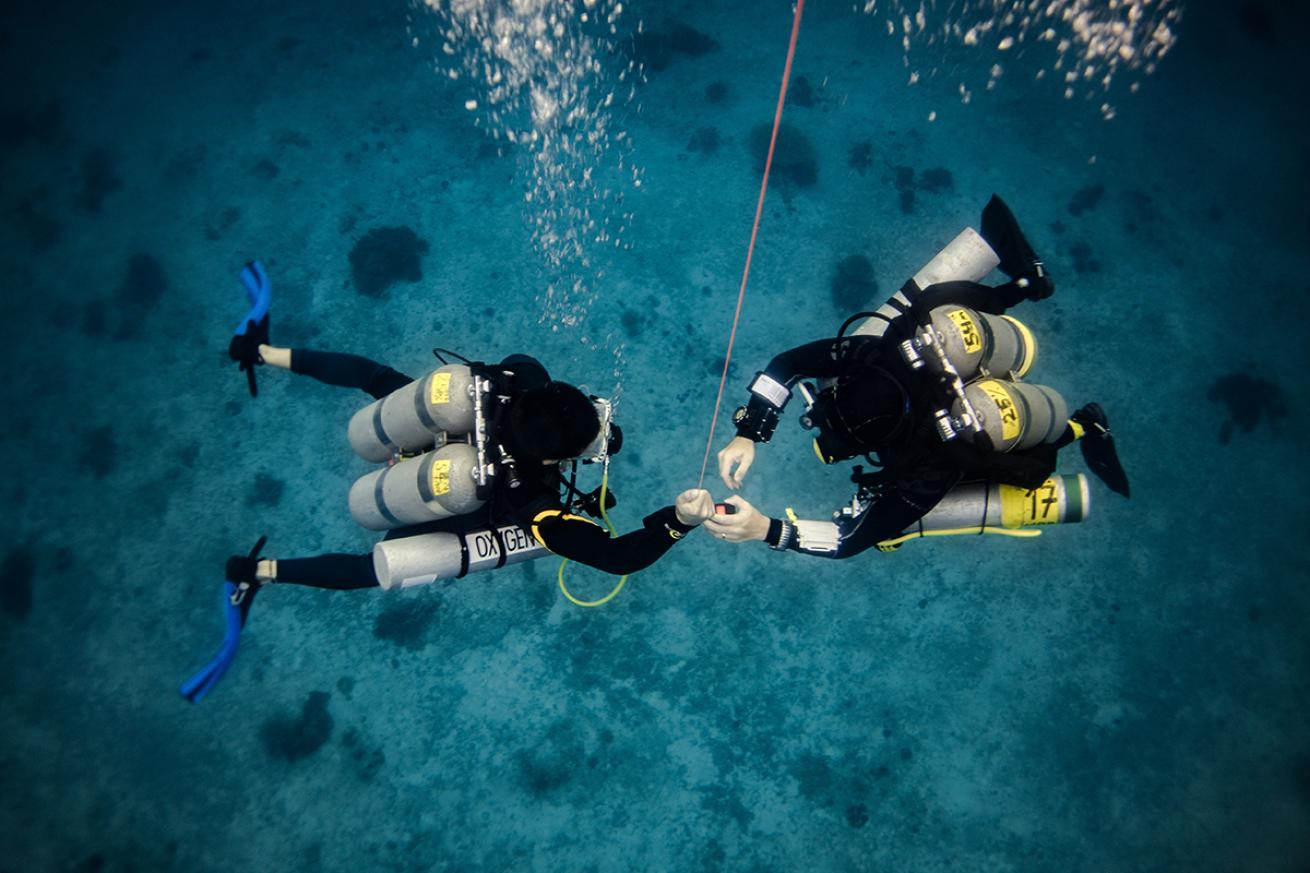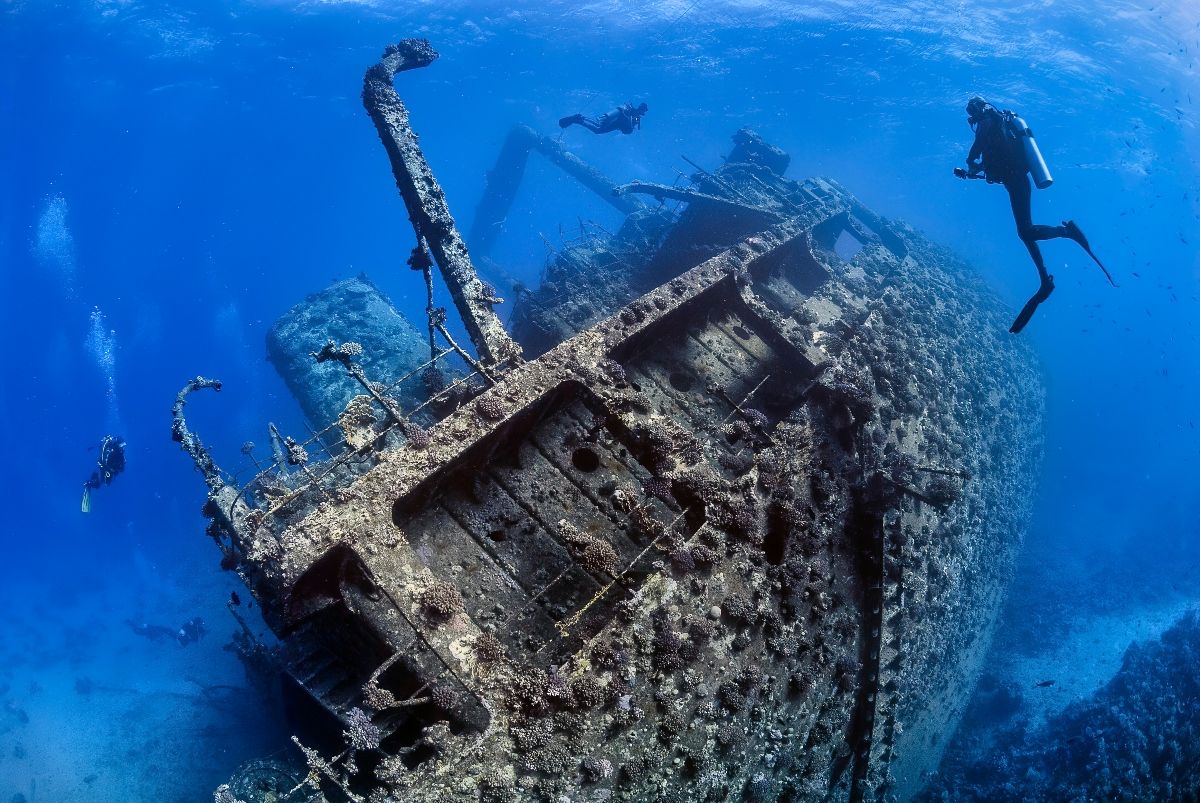Many people dream of exploring colourful coral reefs and swimming with fish, but one question often stops them: Is scuba diving safe for non-swimmers?
The short answer is yes, non-swimmers can try scuba diving safely — but only under the right conditions, with proper supervision, and with realistic expectations.
- Can non-swimmers go scuba diving?
- Is scuba diving safe for non-swimmers?
- Why swimming is not required for beginner scuba diving
- Common misconceptions about non-swimmers and scuba diving
- Misconception 1: You must know swimming for every type of dive
- Misconception 2: Scuba diving is dangerous for non-swimmers
- Misconception 3: You can drown underwater if you don’t know swimming
- Misconception 4: You need to stay underwater for too long
- Misconception 5: Scuba diving is only for the physically fit
- What non-swimmers can expect during their first scuba dive
- What types of diving non-swimmers can do
- What non-swimmers cannot do
- Tips for non-swimmers to enjoy a safe scuba diving experience
- Should non-swimmers take swimming lessons before diving?
- Best scuba diving destinations for non-swimmers in India
- Final thoughts: Is scuba diving worth it for non-swimmers?
- FAQs about scuba diving for non-swimmers
This complete guide explains what non-swimmers can and cannot do in diving, safety requirements, common misconceptions, and expert tips to enjoy your first underwater experience confidently. If you’re planning a beginner dive in India or anywhere else, this article will help you make the right decision.
Before diving in, feel free to read more beginner-friendly guides on our website at Scooba Dive Guide.
Can non-swimmers go scuba diving?
Yes, non-swimmers can participate in introductory or trial scuba diving programs, also called Discover Scuba Dive (DSD) or Try Dive.
These programs are designed specially for beginners who have little or no swimming experience.
In a DSD session:
You are always accompanied by a certified dive instructor.
You receive basic training in shallow water before entering deep water.
You learn how to breathe through the regulator and stay relaxed.
The instructor controls your depth, buoyancy, and movement.
Because you are never left alone and you don’t need to swim independently, it becomes completely safe for non-swimmers to enjoy the underwater world.
However, non-swimmers cannot get an official scuba diving certification like Open Water Diver because certification requires the ability to swim at least 200 metres.
Is scuba diving safe for non-swimmers?
Scuba diving is considered safe for non-swimmers when:
You join a proper beginner program like DSD.
You dive only with a trained, licensed instructor.
You follow all the instructions carefully.
You stay within shallow and controlled depths.
You dive with good weather and clear visibility.
These beginner programmes are designed with safety as the highest priority. You are not expected to swim or float on your own. Instead, your instructor holds on to you or guides you throughout the entire dive.
Many dive centres around the world, including India, get hundreds of non-swimmers every week. Places like Goa, Andaman, Pondicherry, and Lakshadweep offer safe beginner dives for people who are touching underwater life for the first time.
Why swimming is not required for beginner scuba diving
Many people think scuba diving is only for swimmers, but that’s not true.
Here’s why:
When you are underwater, you float because of the buoyancy vest.
You don’t need to move your legs to stay up.
The instructor controls your buoyancy and direction.
Breathing through the regulator keeps you stable and relaxed.
Scuba equipment supports your body and movement.
Swimming skills become important only when you learn to dive independently, not during a guided beginner dive.
So even if you cannot swim or are scared of water, you can still enjoy the magical underwater world safely.
Common misconceptions about non-swimmers and scuba diving
Many myths stop non-swimmers from experiencing scuba diving. Here are the most common misconceptions, explained clearly.
Misconception 1: You must know swimming for every type of dive
This is not true. Swimming is needed only for full scuba courses, not for beginner diving experiences.
Misconception 2: Scuba diving is dangerous for non-swimmers
Beginner sessions are built exactly for people who cannot swim. Safety protocols, training, and instructor supervision keep the experience safe and controlled.
Misconception 3: You can drown underwater if you don’t know swimming
You breathe normally using a scuba regulator, you float because of the jacket, and the instructor stays beside you from start to finish. Drowning risk is extremely low when you follow proper guidelines.
Misconception 4: You need to stay underwater for too long
Beginner dives usually last 20–30 minutes underwater, at shallow depths where equalising and breathing feel easy even for first-timers.
Misconception 5: Scuba diving is only for the physically fit
You do not need to be athletic or sporty. As long as you are medically fit, you can try diving even if you are not a strong swimmer.
What non-swimmers can expect during their first scuba dive
Knowing what happens during the dive can reduce fear and make you more comfortable. A typical beginner dive has these steps.
Step 1: Short briefing on land
Your instructor explains:
how to breathe through the regulator
how to equalise pressure
how to communicate underwater using hand signals
what depth you will visit
how the equipment works
The instructions are simple and easy to follow.
Step 2: Practice in shallow water
Before going deeper, you will try breathing underwater in a safe, shallow area. This gives you confidence and helps you relax.
Step 3: The guided underwater dive
After you feel comfortable, the instructor slowly takes you deeper.
You hold their hand or their tank, and they guide every movement.
You observe corals, fish, and marine life while floating peacefully.
Step 4: Slow exit and surface time
After your dive, you return to the boat or shore calmly.
Most people finish the session feeling amazed and proud.
What types of diving non-swimmers can do
Non-swimmers can safely do the following:
Introductory beginner dives
Resort dives
Pool dives
Discover Scuba Dive (DSD)
Underwater walk (sea walk in some locations)
These experiences do not require swimming tests or certification.
What non-swimmers cannot do
Non-swimmers cannot become certified scuba divers until they learn to swim.
Courses like:
Open Water Diver
Advanced Open Water
Rescue Diver
Divemaster
all require a basic swimming test for safety reasons.
Tips for non-swimmers to enjoy a safe scuba diving experience
Here are some easy tips that make your first dive smoother and safer.
Choose a professional, certified dive school.
Listen carefully to all instructions.
Practice breathing slowly before going deeper.
Relax your body instead of forcing yourself to swim.
Avoid diving on an empty stomach.
Stay hydrated but don’t overdrink water.
Tell your instructor if you feel uncomfortable.
Pick a destination with calm water and good visibility.
If you want beginner-friendly dive locations, check our full guides on Scooba Dive Guide.
Should non-swimmers take swimming lessons before diving?
It is not necessary for a basic guided dive.
However, learning to swim can improve your confidence in water and help you advance to certification courses later.
If your long-term dream is to become a certified scuba diver, taking swimming lessons is a great idea.
Best scuba diving destinations for non-swimmers in India
India has many beginner-friendly dive spots where non-swimmers can safely enjoy underwater life. Some great choices include:
Goa
Andaman Islands (Havelock, Neil Island)
Pondicherry
Lakshadweep
Murudeshwar
Netrani Island
These locations offer shallow waters, good visibility, and trained instructors who specialise in beginner programmes.
For more India-specific scuba guides, visit our website scoobadiveguide.com.
Final thoughts: Is scuba diving worth it for non-swimmers?
Yes, scuba diving is absolutely worth it even if you cannot swim.
You can enjoy a safe, memorable underwater experience with:
a certified instructor,
controlled shallow depths,
simple training,
and professional equipment.
Many non-swimmers dive for the first time and fall in love with the ocean. If you are curious about trying it, take the first step and book a beginner dive at a reputable dive school.
To learn more about scuba diving tips, destinations, pricing, and beginner guides, explore our detailed articles at Scooba Dive Guide.
FAQs about scuba diving for non-swimmers
Can I scuba dive if I don’t know how to swim?
Yes, you can try beginner programs like DSD, which do not require swimming skills.
Is scuba diving dangerous for beginners?
No, it is safe when done with trained instructors and proper safety procedures.
How deep can non-swimmers go in scuba diving?
Most beginner dives range between 6–12 metres, depending on comfort and location.
Do I need to be physically fit for scuba diving?
Basic fitness and normal health are enough. Serious medical conditions may require doctor approval.
Can I get scuba certified without swimming?
No, certifications require a swimming test. But non-swimmers can still do trial dives.
Should non-swimmers avoid deep water?
During a guided dive, your instructor handles everything. You don’t need to swim independently.
